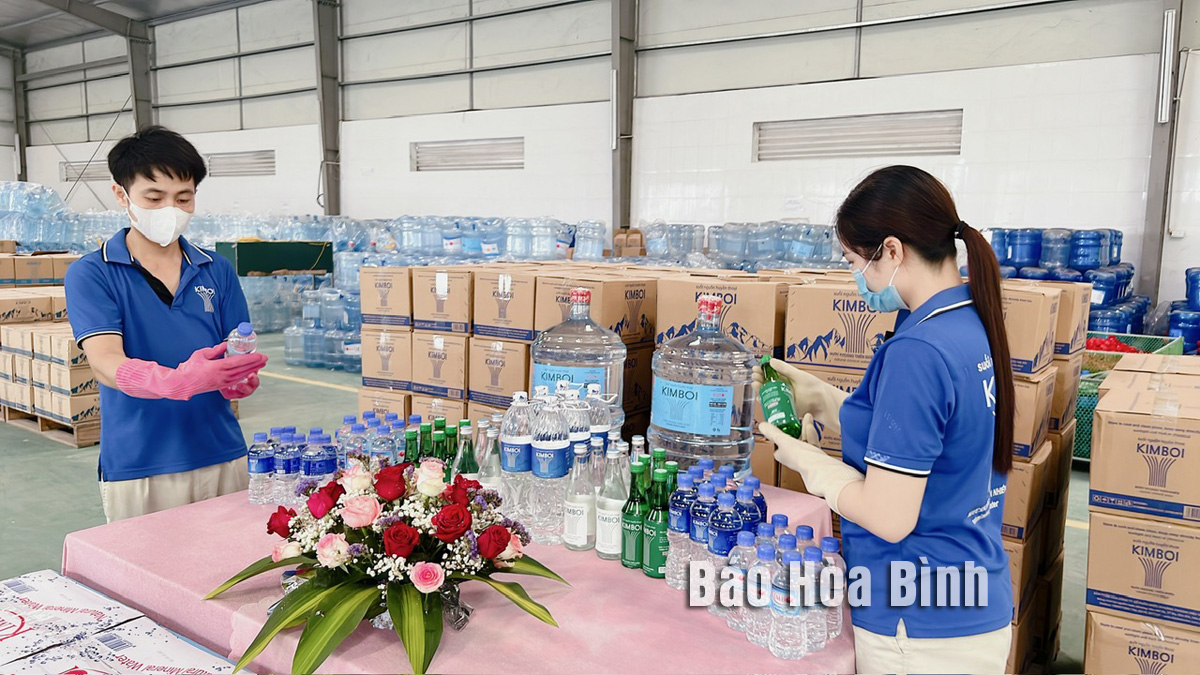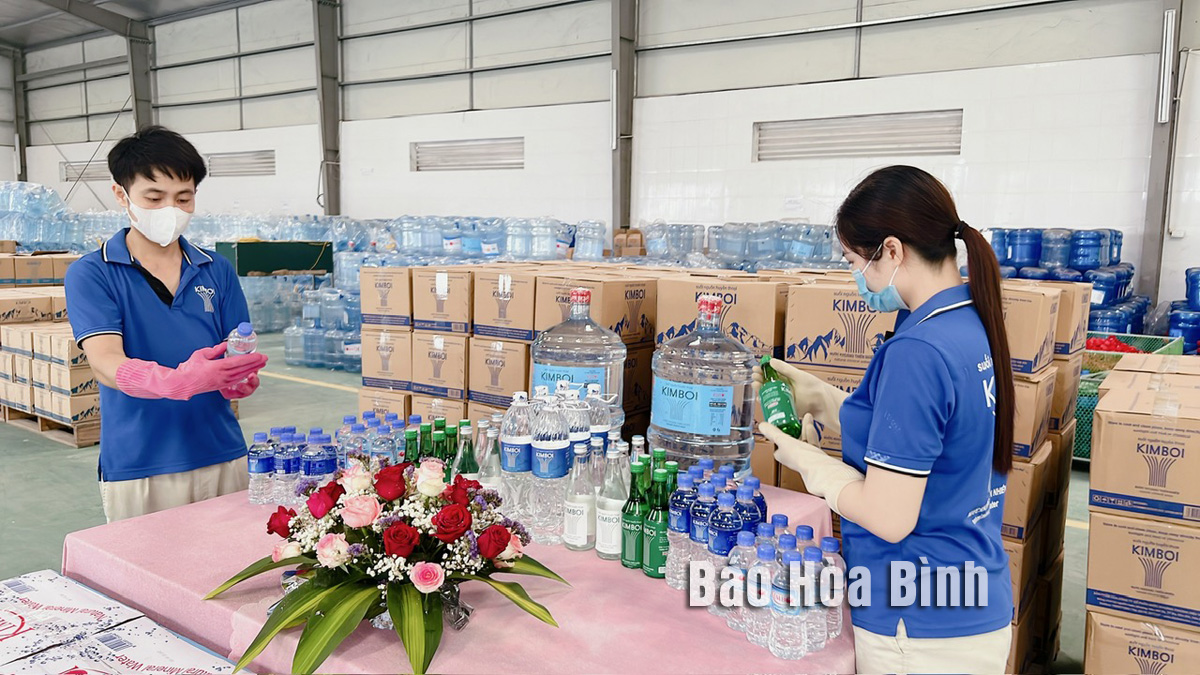
Kim Boi mineral water has been known as a precious natural gift bestowed upon the district of Kim Boi. Kim Boi mineral water is extracted from limestone beds formed 250 million years old at a depth of 175.5m with a temperature of 36.5°C. It contains many minerals useful for human health such as calcium, sodium and magnesium.

Workers of the Kim Boi Mineral Water joint
Stock Company examine mineral water products.
As one of the two units that
are licensed for mineral exploitation in the district, the Kim Boi Mineral
Water joint Stock Company has focused on investing in infrastructure, building
new workshops, and purchasing modern production machines, meeting ISO
9001:2008, ISO 22000:2005 standards, with a total value of hundreds of VND.
Kim Boi mineral water meets
the requirements of food safety and hygiene quality certified by the Ministry
of Health. It has been granted a trademark registration certificate and voted
for high-quality Vietnamese products. The company has supplied various natural
mineral water products to the market, along with improving product designs to
cater to customer segments.
The company's total revenue
reaches over 15.3 billion VND (597,181 USD) per year, providing stable jobs and
income for nearly 40 local workers. Last year, Kim Boi mineral water was
certified as meeting 4-star One Commune One Product (OCOP) standards. With its
potential and existing advantages, the company is carrying out a major
restructuring and speeding up investment promotion toward being recognised as a
5-star OCOP product, gradually becoming natural mineral water brand with the
largest market share in Vietnam.
Vu Hai Phong, General
Director of the Kim Boi Mineral Water joint Stock Company, said that over the
past 45 years of formation and development, its Kim Boi mineral water products
have gained the trust of consumers. The company has invested in upgrading two
new bottling production lines using German technology with a capacity of 60
million bottles per year, he added.
Aiming to become not only a
strong domestic brand but also reach the global market, the company continues
to invest in infrastructure, equipment to expand production and diversify
products.
It is also building a
promotion strategy, introducing products as a specialty of Kim Boi district, building
a new wastewater treatment area to ensure environmental criteria; focusing on
efficiently exploiting rare and precious mineral water sources, Phong said,
adding that the company is striving to satisfy criteria to be recognised as a
5-star OCOP product, elevating the Kim Boi natural mineral water brand to new
heights.
According to data from the Hoa Binh Provincial Party Committee, the industrial production index for the first six months of 2025 is estimated to have increased by 20% compared to the same period last year. This marks the highest year-on-year growth rate for this period since 2020.
In the first six months of 2025, Hoa Binh province’s export turnover was estimated at 1.145 billion USD, marking an 18.11% increase compared to the same period in 2024. Import turnover was estimated at $ 804 million, a 17.15% increase, which helped the province maintain a positive trade balance.
The lives of the ethnic minority farmers in Tan Lac district have gradually improved thanks to the new directions in agricultural production. This is a testament to the collective strength fostered through the professional associations and groups implemented by various levels of the district’s Farmers’ Union.
With the motto the "product quality comes first,” after nearly one year of establishment and operation, Muong village’s Clean Food Agricultural and Commercial Cooperative, located in Cau Hamlet, Hung Son Commune (Kim Boi district), has launched reputable, high-quality agricultural products to the market that are well-received by consumers. The products such as Muong village’s pork sausage, salt-cured chicken, and salt-cured pork hocks have gradually carved out a place in the market and they are on the path to obtaining the OCOP certification.
In the past, the phrase "bumper harvest, rock-bottom prices" was a familiar refrain for Vietnamese farmers engaged in fragmented, small-scale agriculture. But today, a new spirit is emerging across rural areas of Hoa Binh province - one of collaboration, organisation, and collective economic models that provide a stable foundation for production.
Maintaining growing area codes and packing facility codes in accordance with regulations is a mandatory requirement for agricultural products to be eligible for export. Recently, the Department of Agriculture and Environment of Hoa Binh province has intensified technical supervision of designated farming areas and packing facilities to safeguard the "green passport" that enables its products to access international markets.



